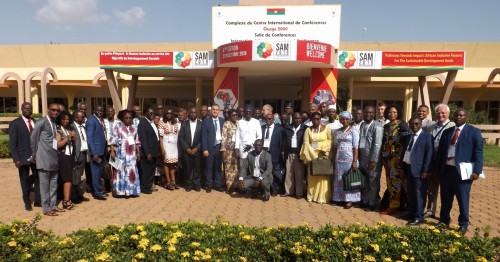Objectives of the project
Accompany professional associations to promote transparency and financial education in the sector in Africa.
Contact
Partners
Tanzania Association of Microfinance Institutions (TAMFI) et Microfinance African Institutions Network (MAIN)

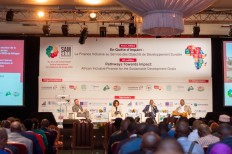
Collaborating with African networks to amplify financial inclusion
ADA works with professional associations in Africa to build capacity for transparency across the sector on the continent. With stronger and more competent associations, microfinance institutions are able to develop services and products that are better adapted to the needs of low-income populations.
ADA considers that transparency for African MFIs remains a challenge so that the clients of these MFIs have access to all the necessary information, as well as the ability to understand and compare the products on offer in order to make clear decisions.
This is why ADA has decided to support African professional associations committed to promoting and strengthening transparency in their respective countries by providing them with technical assistance. Professional associations are strategic partners and represent one of the best channels to reach the sector as a whole in different countries and regions of intervention.
In recent years, several transparency-related projects have been set up such as the co-financing of ratings, the development of tools for data collection, analysis and publication, training and the promotion of client protection principles.
Transparency tools available to the networks
The transparency index was developed from the indicators present in the SPI4 tool, selected by ADA and CERISE and specifically compiled to calculate a transparency index at the MFI level. The networks appropriate the tool in order to be able to disseminate it among their members and monitor it. A training of trainers module is then developed, as is the awareness training on transparency for dissemination.
For the collection, analysis and publication of data, a Microfact training course is organized for MFIs, in English and French, to familiarize them with the analysis of financial performance indicators. At the same time, a system of incentives for sending financial data is set up by the networks.
MFIs are made aware of transparent practices through workshops.
The "transparency" workshops will make it possible to disseminate to all the members of the network the achievements and lessons learnt with regard to the various transparency tools and concepts used.
On the other hand, the trainings on social performance management raise awareness among MFIs on best practices in social performance and their importance for the sustainability and viability of institutions. During the training, the SPI tool is presented and MFIs learn how to use it, the audit process and technical assistance.
Microfact trainings on the analysis of financial and social performance indicators are also organized, with the objective of familiarizing MFIs with the factsheet tool for financial and social reporting.
Technical assistance, be it for the use of the index, the implementation of action plans, the SPI4 audit or the SMART Certification, is offered to selected MFIs that have completed the training, responded to a call for tender and are ready to co-finance this service.
Auditing the implementation of good practices
Customized technical assistance allows MFIs to benefit from an SPI4 audit of CERISE, with a particular focus on client protection. This post-training support allows for a close follow-up of the participants after the on-site training.
MFIs that have demonstrated their commitment to responsible financial service delivery are selected and retained for an assessment of their client protection practices. This assessment proves their level of compliance with client protection standards by setting a benchmark.
Thanks to the partnership with MAIN, we reach 29 African countries!
MAIN (Microfinance African Institutions Network) is an international non-profit association created in 1995 in Abidjan at the initiative of several institutions with a long experience in microfinance and/or the promotion of micro-enterprises in Africa.
As of 31 December 2019, MAIN had 114 members in 29 countries.
In the same year, the network set up :
- organization of 11 international conferences,
- 36 sessions of university programs,
- 67 thematic training sessions,
- 12 exchange visits.
A total of 3,737 microfinance practitioners were trained by MAIN and 10 publications were produced by the network in 2019.
ADA's partnership with MAIN is also implemented within the framework of the organisation of the SAM (Semaine Africaine de la Microfinance). The network has been at ADA's side since the 1st edition in 2013.
Together for more transparency in the African sector
ADA has supported the African Microfinance Transparency (AMT) network since 2008. The objective of AMT was to promote transparency within MFIs on the African continent.
In 2016, AMT's Board of Directors took the decision to merge its activities with MAIN which takes over the activities related to the promotion and development of MFI transparency in Africa. Former AMT members were encouraged to join the MAIN network.
In fact, MFI transparency remains a very important issue in Africa, particularly in order to ensure that microfinance clients have the information and capacity to understand and compare the products offered to them and thus make the best possible choice.
In June 2018, ADA proposed to MAIN to collaborate on a project to promote and develop MFI transparency in Africa:
- The provision of tools and capacities so that MAIN can be recognized as a centre of expertise in the field of transparency;
- The sensitization of the MFIs members of the network so that they define a policy of financial and social transparency, also taking into account the protection and financial education of clients;
- Some MFIs are selected to implement their transparency policy with the support of MAIN.
Support to TAMFI, an MFI network in Tanzania
ADA strengthens the capacity of professional associations to promote and develop the transparency of the inclusive finance sector in partnership with the national network Tanzania Association of Microfinance Institutions (TAMFI).
While the microfinance industry in Tanzania is still in the nascent stage with respect to the legal and regulatory framework, awareness, infrastructure and the development of financial products and services, financial inclusion has become increasingly important. these last years. It is now a political goal to improve the lives of the poor. Access to finance by micro and small enterprises and SMEs is also recognized as a factor in improving productivity, competitiveness and job creation.
The industry faces a number of constraints that must be addressed to enable it to improve its development and sustainability. The main obstacle to the development of microfinance activities in Tanzania is the lack of specific legislation to guide the operations of the microfinance sector.
TAMFI is a national network of Microfinance Institutions in Tanzania and was established in the year 2001 as a nongovernmental organization (not for profit). TAMFI works to strengthen Tanzania’s microfinance sector by promoting cooperation and collaboration among its member organizations, providing trainings and conducting research, and advocacy. TAMFI provides a platform for all microfinance stakeholders (institutions) which allows them to meet, discuss, dialogue, present, argue, voice their concerns and interests, network and collaborate for the purpose of developing the microfinance sector in the country.
Networks and professional associations in Africa, strategic partners for the development of transparency
TAMFI is composed of 135 members comprising of 7 Commercial banks, 3 Community banks, 4 Microfinance banks, 96 Microfinance Institutions, 5 SACCOS, 5 apexes of informal microfinance groups, 1 micro-insurance company and 14 Business Service Providers. Together, these members provide financial services to approximately 4 million micro entrepreneurs in urban and rural areas.
MFIs rely on national networks and professional associations to develop appropriate financial products and create a favorable environment. TAMFI contributes to the increase and promotion of transparent best practices to ensure the delivery of responsible financial services by member MFIs.
In principle, this involves collecting, formalizing, and disseminating reliable and up-to-date information that is needed by different types of actors who interact with an MFI or analyze the results and trends of the sector.
The collaboration in 3 points:
- The improvement of knowledge and skills regarding transparency in inclusive finance within TAMFI's member MFIs.
- The development of a sound and transparent regulatory environment adapted to all actors in the inclusive finance sector.
- Client-centred orientation providing transparent and appropriate services to the clients of member MFIs.
In 2019, ADA reached 90 MFIs in Tanzania, representing 60% of TAMFI members.
In addition, 76 loan officers were trained in financial education, 44 MFIs benefited from awareness training in financial education and 56 participants were trained in transparency.
What did the course participants think?
TRANSPARENCY WORKSHOP
As part of the partnership with the national network TAMFI to promote transparency, training sessions are hold on transparency and financial education in Tanzania.
The purpose of this 2,5 days workshop is to get a full picture of the various components of transparency and to raise awareness on the industry standards and tools that exist to support improvement and disclosure. At the end of the workshop, participants know where they stand in a transparency graduation process and they leave with a clear action plan to implement.
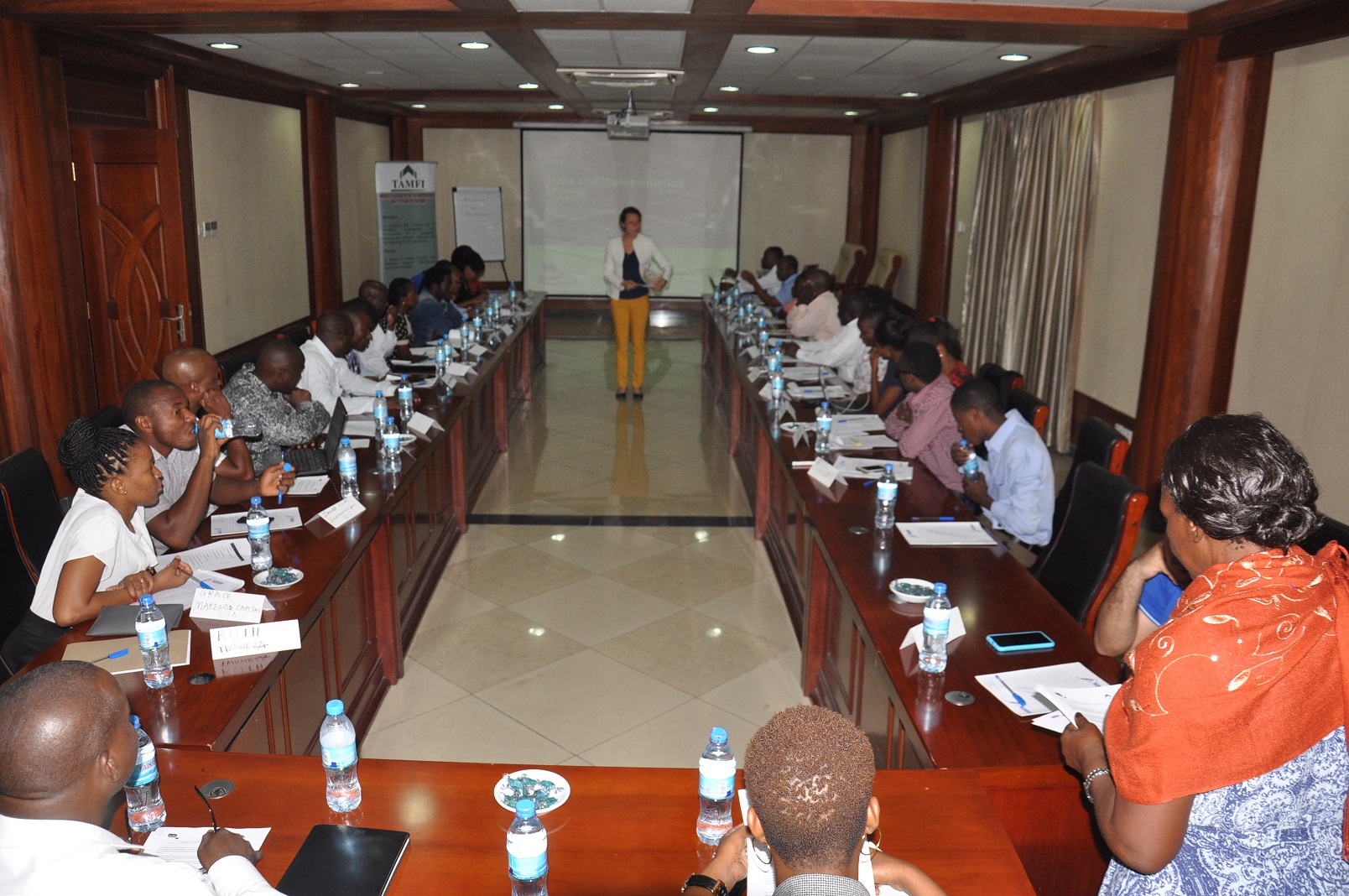
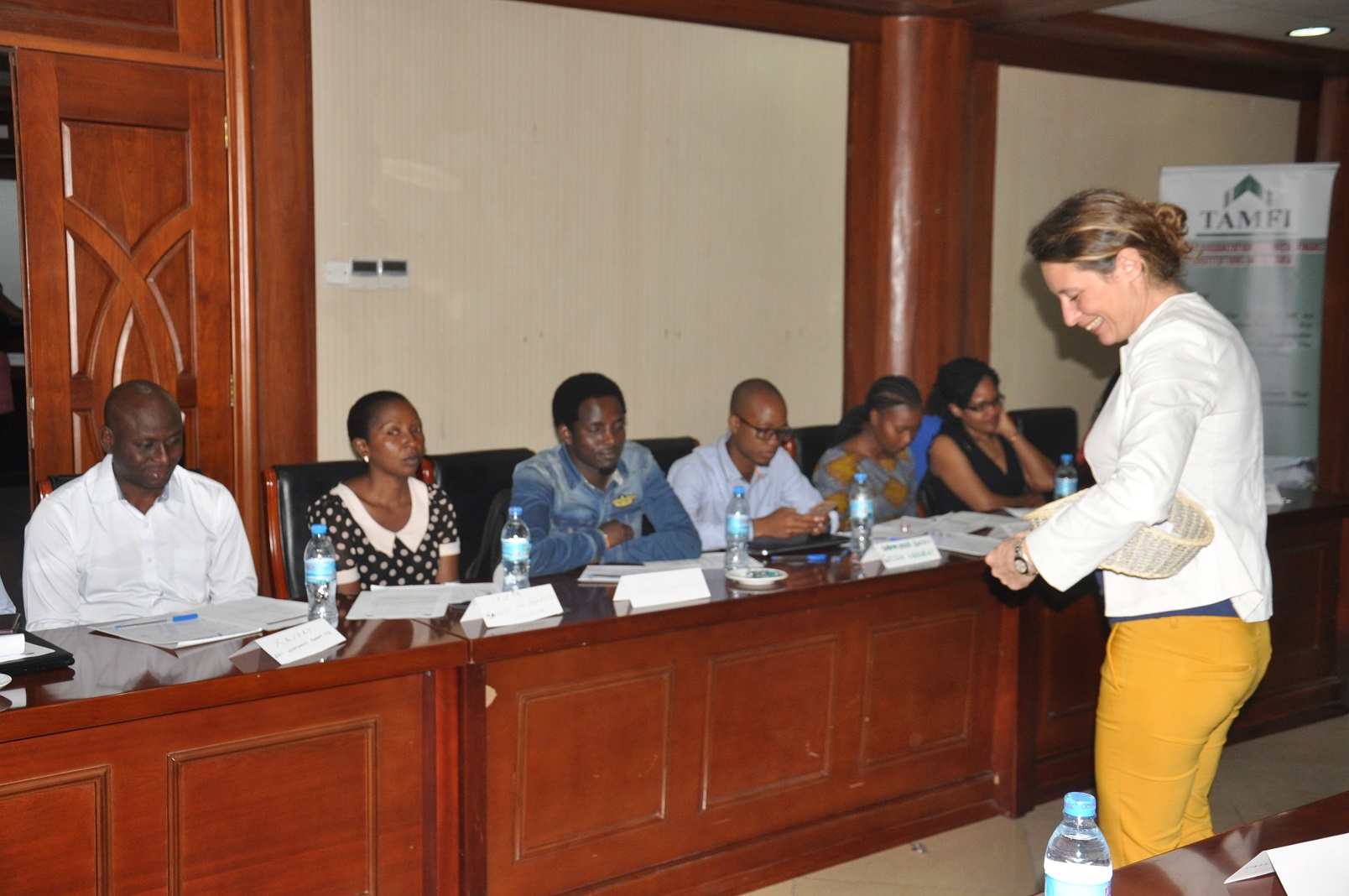
Testimonies
‘As a National Microfinance Network, we think Transparency training for TAMFI members could not have come at a better time. We appreciate the support from ADA that has made the training possible. MFIs in Tanzania need such trainings because transparency has remained to be a major challenge to most.’
Winnie Terry,
CEO, TAMFI
‘I would like to thank the entire team and the sponsors for arranging such an eye opener and aware creation training. Transparency training was a learning experience and an exposure that is surely helpful. Although practice is required, but with time and dedication, it certainly is worth for all financial providers in the market. Am looking forward for continuous trainings on both workshops for financial providers and TOTs, so we can be pioneers in making the Tanzanian financial market transparent.’
Pendo Massawe
Operations Manager, Tujijenge Tanzania
‘The training was magnificent, relevant and practical. It touches the heart of Microfinance practices that no one could have imagined. As I see it goes beyond increasing business value but far most it creates humanity at business level because it insists on social aspects through transparency. I am sure most MFIs had an opportunity to evaluate their positions on transparency and pricing.’
Godson Mnkhari
Loan Officer, Same Kaya Saccos
‘The training on Transparency has become very useful in my daily job activities. It has alerted me on ensuring that my customers understand all key issues in a loan contract before they sign for a loan. The training also triggered my understanding on the benefits of being transparent and the methods used to calculate interest rates and making comparisons on the APR.’
John M Busobe
Microfinance Services Company Ltd, CRDB Bank Ltd
FINANCIAL EDUCATION
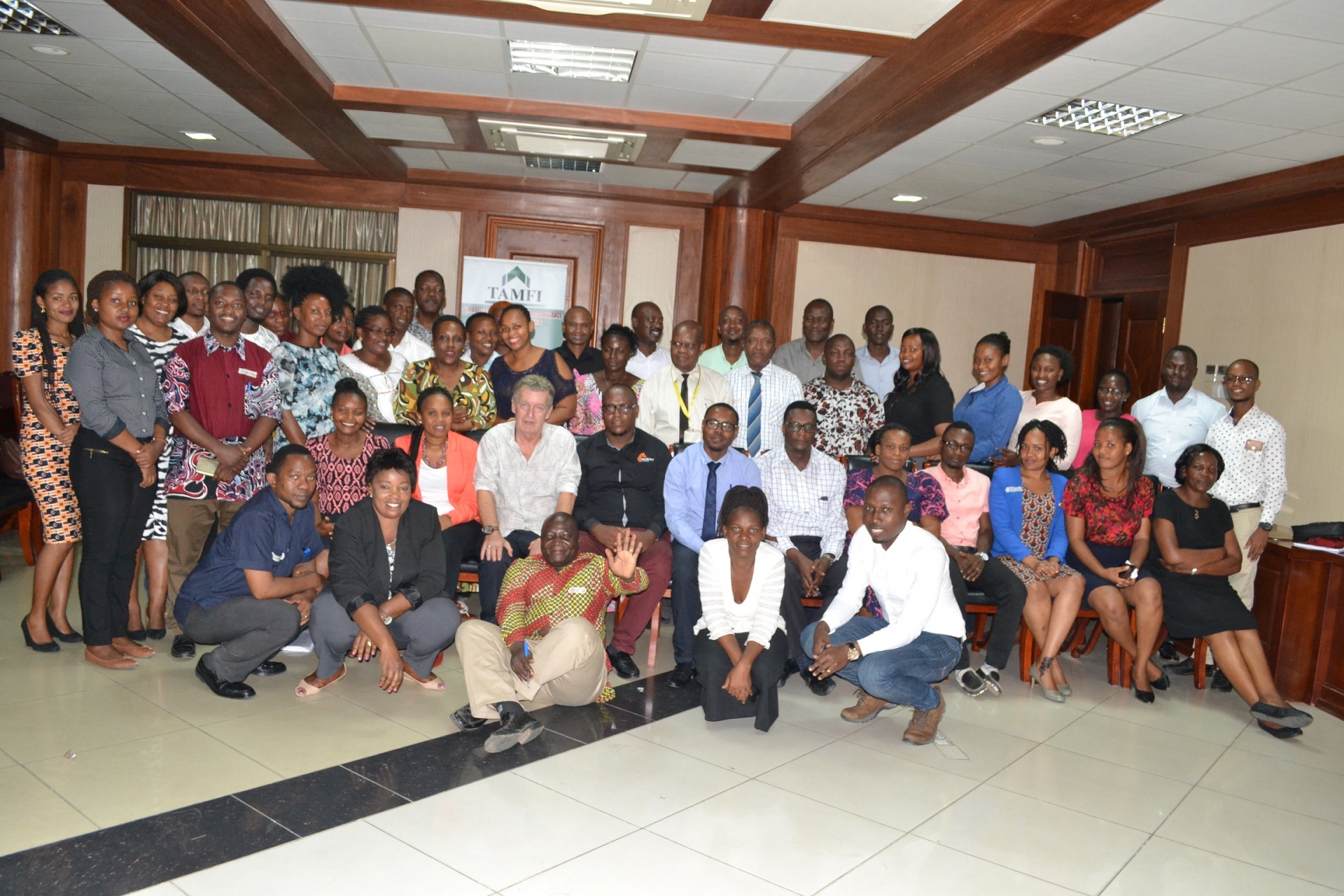
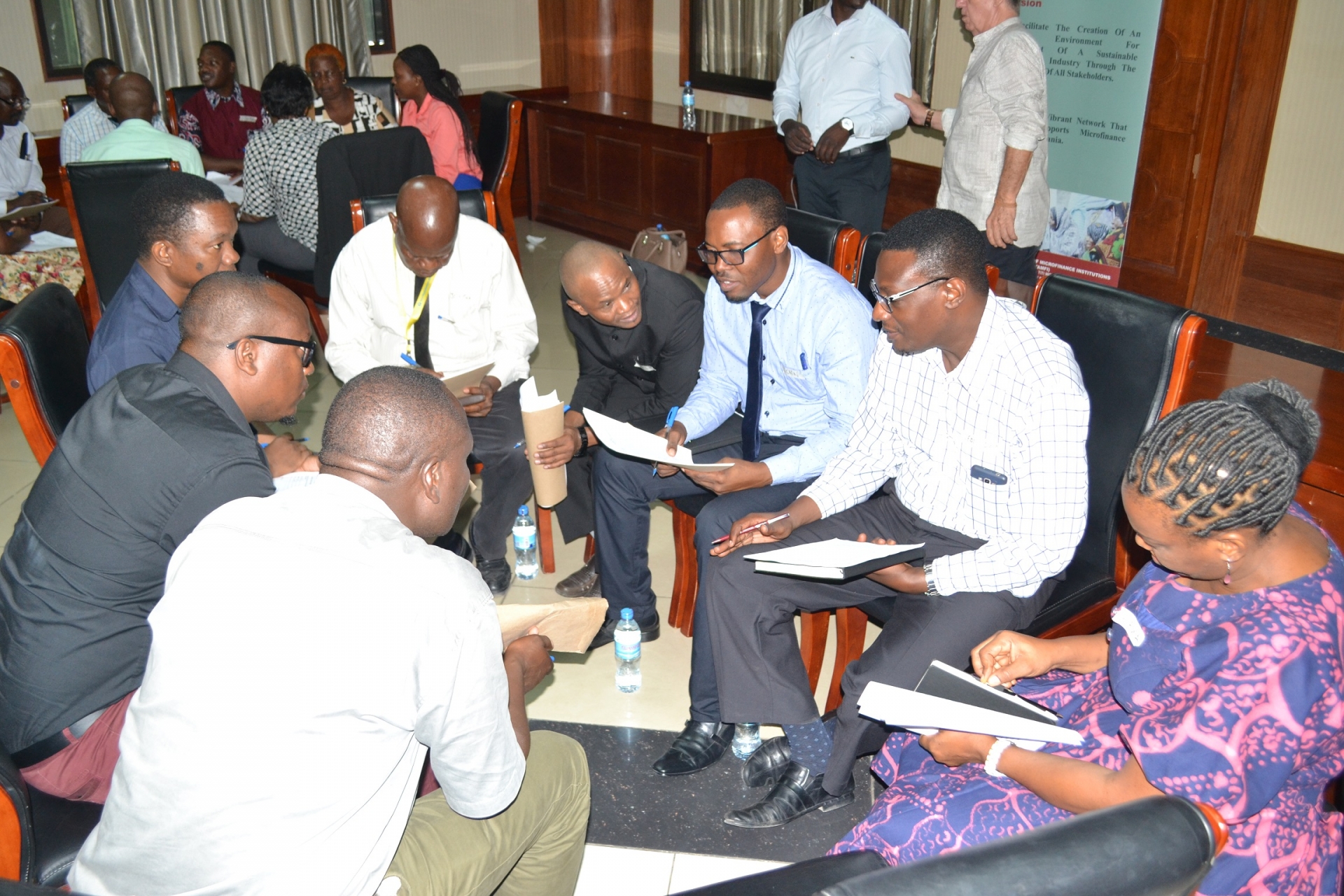
Testimonies
‘Financial Education training was one of its kind. The trainer used participatory methods that made participants to understand easily.’
Naamala Samson
Learning and Development Manager, BRAC Tanzania
‘For me to attend Financial Education training was a worthwhile opportunity. It was a constructive training because it planted elements that are very crucial for the better future and road map of our organization. Our organization can now structure well the agenda of Financial education.’
Thadeus Clamian
Loan Officer
‘We really thank the donors who funded this training and TAMFI at large. Financial education training provided us with ideas on how we can make lots of changes in our working system, including financial education programs.’
Martin M. Ringi
Ringi Enterprises Ltd

